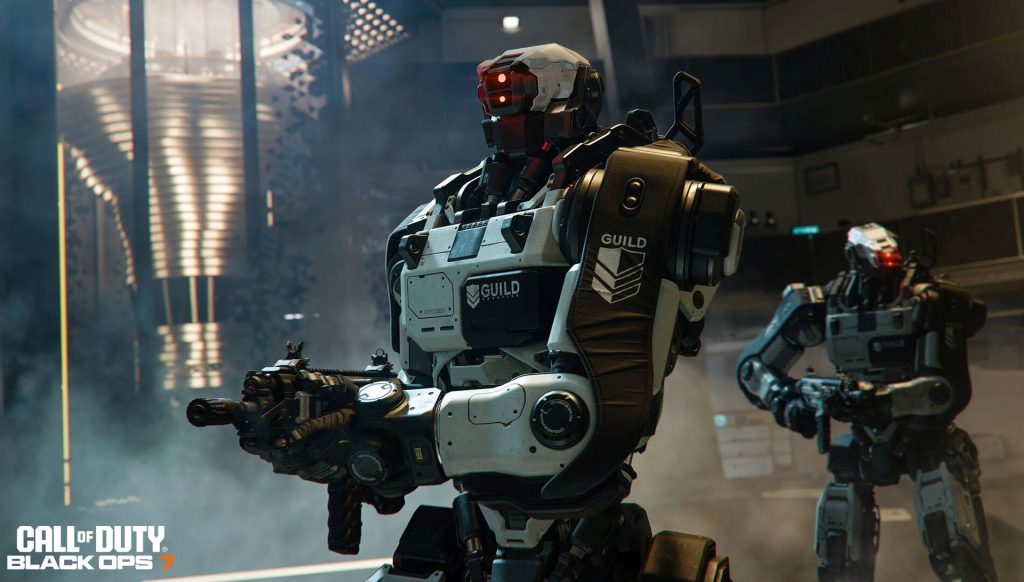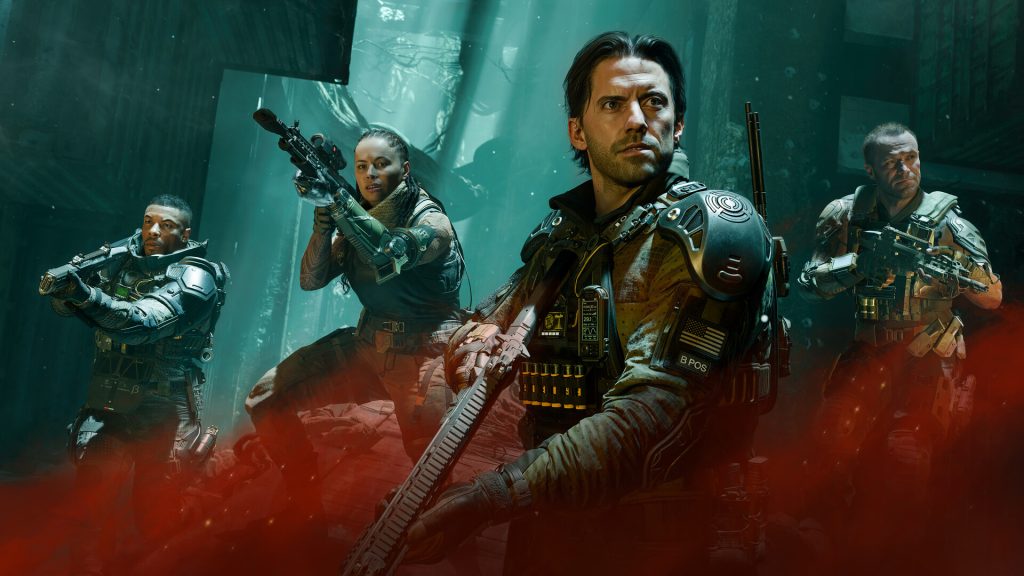It’s 2025, and new battle lines have been drawn. Battlefield’s irresistible force is set to butt heads with Call of Duty’s immovable object once again. Both are first person shooters, and known entries in this popular genre of warfare gaming. Except, this year, Battlefield is primed to punch holes in CoD’s weakening armour as pre-release conversation is shaping Battlefield 6 as a CoD-killer.
We’ve been here before though, right? In 2013, skirmishes erupted into full-scale war as Battlefield 4 challenged Call of Duty Ghosts. DICE’s effort was great and 4 retained its pedigree as one of the best games in the genre. Two years later, Battlefield 1 marched into Infinite Warfare’s territory. It briefly won the hype war, but couldn’t keep up with CoD’s locomotive power relentlessly steaming a train’s worth of content on Infinite player’s tracks. Battlefield stumbled with the sci-fi themed 2042, but along with the absolutely awful Vanguard, it was tie.
So, what’s different this time? On the surface, Black Ops 7, while ambitious, feels overloaded with ideas whereas Battlefield 6 is laser-focused, set to deliver an accessible, back-to-basics experience that can gratify veterans and casuals alike. Alone, is this enough for Battlefield 6 to “destroy” Call of Duty: Black Ops 7? Outclass maybe, as surely CoD is too big to fail. Surely, right? (note to VO: sarcasm) Regardless, many players think this year might be the year Battlefield blasts Call of Duty’s stranglehold on the military shooter genre into mushroom clouds.
To explore Battlefield 6’s potential to “destroy” – in inverted commas – Black Ops 7, we need to examine beyond the former’s streamlined philosophy versus the latter’s perceived complexity.
Call of Duty: Black Ops 7’s action takes place in 2035, where warfare rages on psychological battlefields. Black Ops II’s David “Section” Mason returns to lead an elite JSOC unit on a mission spanning both the globe and the darkest reaches of his squad’s psyche. When his team explores a soldier’s mind in a “shared reality”, floor tiles ripple like tidal waves and highways spiral into the sky. These sections borrow visually and thematically from Christopher Nolan’s 2010 movie Inception, and together with towering boost jumps, bubble shields, and more wall-sprinting omni-movement than ever, the series demonstrates a near-total dismissal of grounded realism in favour of Hollywood pizazz.
There’s sentiment amongst fans that, despite the sub-series often dipping into the surreal throughout its history, the suspension of disbelief required to enjoy Black Ops 7 might be too great. However, if the shooting is good, if its locations are well-designed, and if the story is engaging despite its lofty premise, is a little Inception-style reality-bending such a problem? No, the issues presented by CoD’s dedicated fanbase – some of which have grown up playing some good and some truly awful ones – run deeper.
Scouring Reddit, it seems financial strain and series fatigue have merged, forcing some players to hold fire on pre-ordering. Common complaints center on Black Ops 7’s $70 price tag, which isn’t always a problem in itself, but a barrier growing in significance as post-release battle passes lighten the wallets of players who wish to enjoy everything the game has to offer. There’s belief that Black Ops 7 could have been DLC, while there are demands for a complete reboot or return to historical settings. Of course, across the broad spectrum of player archetypes comprising CoD’s community, there’s always going to be contrasting demands. While millions of players won’t agree which course the series should take, these disparate directions still point to one thing: the majority haven’t asked for, or don’t want, whatever Black Ops 7 provides.
Some Call of Duty games have a successful track record of appealing to casual players too, especially via Warzone’s least intense modes designed to support as stress free an experience as possible. At present, it’s unclear how appealing Black Ops 7 will be to casual players. There is potential to cater to the non-hardcore crowd: a single player campaign that can be experienced in co-op and the aforesaid Warzone which serves as vital onboarding for players who feel they lack competitive skill. However, with numerous new loadout options, combat specialities, a suite of field upgrades, tactical and lethal items, and weapon builds, plus multiple multi-layered progression systems across operators and armories, there’s an overwhelming amount of stuff casual players need to wrap their head around, all the while, potentially, proving more difficult given the series full-scale assault into sci-fi territory.

In contrast, Battlefield 6 feels easier to grasp. Its grounded, near-modern day setting supports gritty realism, while more focused level design and enhanced destruction systems reinvigorate the cinematic spectacle lost in 2042’s dystopian vision. Satisfying veteran demand is the return of the series’ signature Class System, but it’s undergone refinement for newcomers too. The process is uncomplicated and unfussy: choose a role, undergo training, join a unit, and step foot into battle, with deeper customisation options available to players who’ve gotten to grips with their role. Onboarding continues with Conquest Initiation and Breakthrough Initiation, two of Battlefield’s most iconic modes scaled back for training rather than ultimate war. In these modes, new recruits up to level 15 can practice their skills and strategic thinking in low-stakes combat before embarking on large-scale battles and their overwhelming intensity.
EA has revealed a free-to-play Battle Royale mode too, which they’re clearly positioning to replicate CoD’s Warzone. Like Warzone, Battlefield’s Battle Royale will serve as both a standalone experience and a marketing funnel for the main game. The difference, hopefully, will be restraint; if Battlefield Studios are paying attention to CoD player feedback, they’ll dial back the persistent pop-ups and shop prompts which hinder Warzone’s experience. These ads don’t just break immersion, but aggressively push players to spend to the point of frustration.
Battlefield 6’s design philosophy reflects trends that have emerged across the gaming industry: players are craving immediacy over bloat; they desire concentrated experiences which centre on core mechanics; they want technically polished experiences that use innovation to support gameplay and heighten immersion. Battlefield 6 feels tuned to this energy whereas Black Ops 7 seems to stray too far in the opposite direction. Where Battlefield 6 feels frictionless, Call of Duty’s next instalment demands players work for a joyful experience.

There’s no denying Black Ops 7 may sell – and may be in greater numbers than Battlefield 6 – but its loyal players who purchase every two years or so might find their autopilot disengaged come the year’s end. If Battlefield 6 nails its onboarding, there’s a chance it’ll pull in casual players who would’ve otherwise bought CoD day one. If it perfects its CoD-style infantry-only battles, it might retain those players who’ve jumped the fence. If it satisfies the hardcore FPS crowd whilst still prioritising gameplay for casuals, then – and only then – does it stand a chance of usurping Call of Duty. In short, Battlefield 6 needs to get a lot of things right over a long period in order to truly “destroy” Call of Duty in the future as well.
Crucial to its future is its Battle Royale mode, which needs strong numbers to support EA’s intent for cross-promotion, and if they get it right, Battlefield may be able to compete with Warzone. Battlefield 6 might prove to be the better game creatively, technically, and critically, and despite Black Ops 7 looking like an irresistible force and an immoveable object too strong, DICE may very well have a strong case this year.
Note: The views expressed in this article are those of the author and do not necessarily represent the views of, and should not be attributed to, GamingBolt as an organization.



